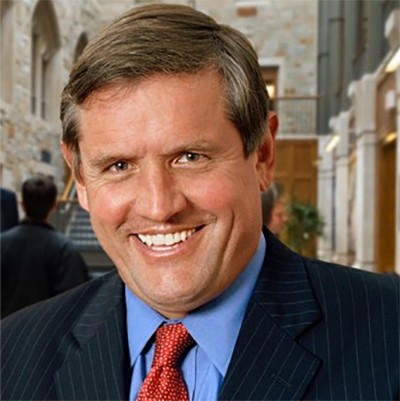
In recent times as I’ve met with prospective faculty members and browsed their stellar CVs, a thought has come to me: a decade ago, most of these people looking to join the Carroll School faculty wouldn’t have even spoken with us. They would have been knocking on the doors of other esteemed places like UCLA, UNC-Chapel Hill, and NYU. Now we’re competing with those and other top schools for the best faculty in various management disciplines.
People who keep seeing the Carroll School and its professors turn up in the news have asked me what makes the School tick. More and more, my response is—“faculty, faculty, faculty.” Ours has come a long way but it hasn’t followed the same path of management schools at other major research universities.
Quite a few management faculties have achieved great and well-deserved distinction almost entirely by dint of research. And we’ve covered that base—the Financial Times has ranked the Carroll School 17th in the world in research productivity and impact. The ranking places us at a tie with management schools at Cornell and Northwestern, and well ahead of UCLA.
But as part of a Jesuit liberal arts university, we don’t have the option of settling for scholars who just excel at scholarship. They also need to be exceptional teachers. And they have to teach in a way that broadens rather than narrows our students, nurturing their intellectual curiosities as well as their sense of social and ethical responsibility. Teaching them to become technically proficient in their chosen careers is great but not enough. It’s not how we roll at Boston College.
We don’t live by the rankings, but I’m happy that our faculty members are getting the research recognition they deserve—and equally happy that Bloomberg Businessweek gave the Carroll School an A+ for teaching quality.
It’s impossible to overstate the role played by the faculty in carrying out our main mission—turning young women and men into leaders who are curious, capable, and caring.
I was chatting recently with Jack Butler, S.J., Boston College’s vice president for University mission and ministry, and he made the point that faculty are on the front lines of not just teaching but also student formation. In a Jesuit liberal arts context, helping students to become lifelong learners who constantly draw connections between their fields of expertise and the wider world, and who act responsibly in their work and their lives, is no small part of student formation. No one is in a better position to do that than a professor who has day-to-day interactions with students.
In this edition of the Carroll Connection, you’ll see examples of what I’m talking about—including a slideshow introducing our newest assistant professors. In the “Findings” section you’ll find an original article about provocative research on connections between leadership and socioeconomic class by Sean Martin (Management and Organization), who holds the spanking new Mancini Family Sesquicentennial Assistant Professorship. In the “Connections” section, you’ll also get a glimpse into a unique approach to teaching business ethics, embodied in our signature Portico course for first-year students. The innovative 10-year-old course is presented in an article published recently in the Journal of Jesuit Business Education, authored by five Portico faculty members.
The quality of our faculty—in terms of teaching excellence and research productivity—has been a prime catalyst for our success at the Carroll School. It’s also a big reason for optimism surrounding Boston College’s future.
Andy Boynton ’78, P’13
John and Linda Powers Family Dean
Carroll School of Management


